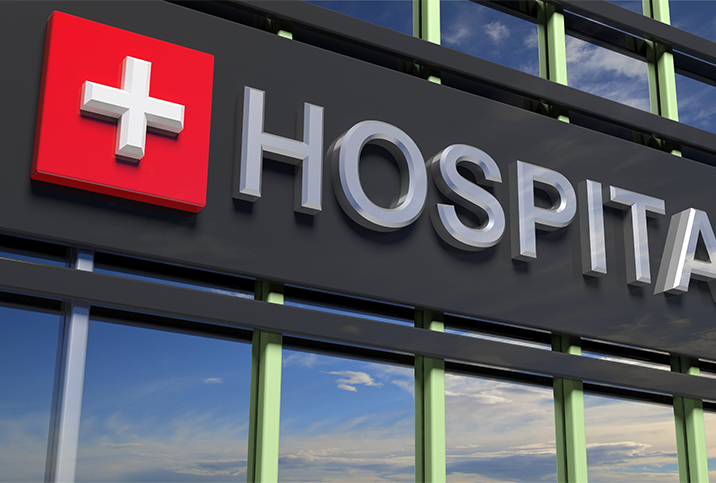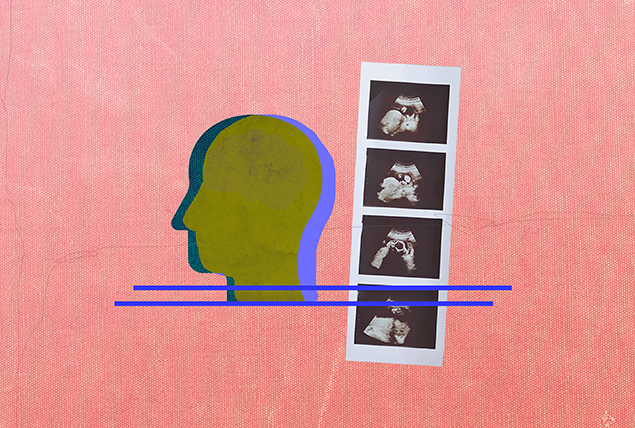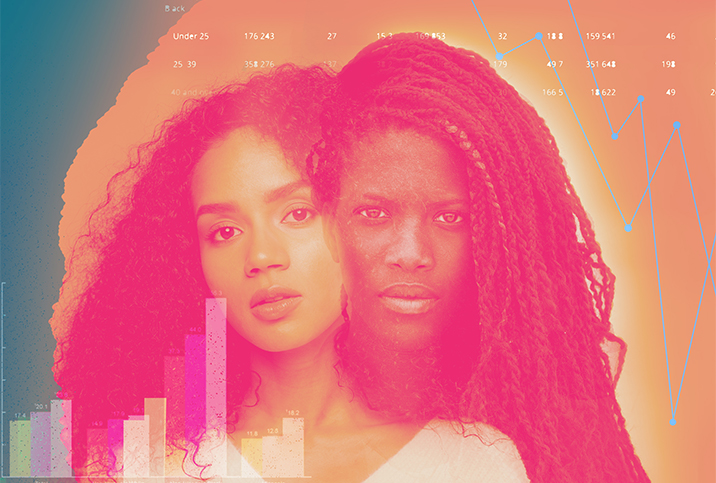The Importance of Prioritizing Maternal and Reproductive Health

Looking after maternal health is a crucial aspect of overall reproductive health. It's important for the health and well-being of both mothers and their babies. Approximately 287,000 women died during and following pregnancy and childbirth in 2020, with the majority of these deaths occurring in low-income countries, according to the World Health Organization (WHO).
Maternal health is a global issue—it affects women in all countries, regardless of their socioeconomic status. Even in developed countries such as the United States, the maternal mortality rate has been rising, with Black and Indigenous women disproportionately affected.
The physical, emotional and mental health of pregnant women and new mothers can impact the long-term health outcomes of their children.
The keys to a healthy pregnancy
One of the most important steps to a healthy pregnancy is ensuring proper prenatal care by regularly visiting a healthcare provider. Adopting a healthy diet that includes a variety of fruits, vegetables, whole grains, lean protein and healthy fats is also critical.
Staying physically active during pregnancy can help improve maternal and fetal health, but speak to a healthcare provider before starting any exercise routine. It is beneficial to exercise during pregnancy, said Jules McGill, an inclusive women's personal trainer and postnatal fitness specialist with Aluna Wellbeing in Shrewsbury, U.K.—to a point.
"But don't reduce yourself to a sweaty puddle," McGill said. "Instead this is the perfect opportunity to tune into what your body wants and needs and how this differs daily."
Exercise during pregnancy teaches a woman some key but very simple breathing exercises that benefit the pelvic floor, strength of the abdominal wall and diaphragm, which will be useful postpartum, McGill said.
"Such exercises are better learned through the pregnancy trimesters rather than in postnatal because adding this to the mental load of a new parent is unnecessary, but also it prevents the new mum from feeling the pressure to 'get back to it'—essentially she already is—she will feel the benefits of exercise without the traditional sweaty workouts," she said.
It's key to focus on how your body feels at this time, as the unfamiliarity of it can be disconcerting.
"I always work with women to be kinder to themselves, to understand that they are doing a lot, learning a lot all on very little sleep," McGill said.
It's about learning to understand your own energy levels daily so that you can choose daily movements that will contribute to raising energy levels rather than depleting them.
Getting enough rest and sleep, avoiding harmful substances such as alcohol and drugs, and managing stress through techniques like meditation or prenatal yoga can also contribute to a healthy pregnancy.
Taking prenatal vitamins and following recommended guidelines for weight gain and prenatal testing can help ensure the best possible health outcomes for both mother and baby.
Miscarriage and stillbirth
The loss of a baby in the first 23 weeks of pregnancy is called a miscarriage. It seems like quite a cold term because it's not just a miscarriage and loss of pregnancy, but the loss of your baby and many hopes and dreams.
It's unfortunately common—the American College of Obstetricians and Gynecologists estimates that as many as 26 percent of all pregnancies, or about 1 in 4, end in miscarriage.
It's thought that abnormal chromosomes in the baby are the cause of most miscarriages, but in most cases, your doctor might not be able to tell you why a miscarriage occurred.
What is essential to remember is that it's not your fault. It can affect anyone.
It's natural to want to know why you had a miscarriage, and you may find yourself racking your brain wondering if you did something wrong—but it's not your fault. The same sentiment applies to stillbirth.
The definition of stillbirth alters from country to country. If a baby dies before 20 weeks gestation in the U.S., it is classed as a miscarriage, and after 20 weeks, it is classed as a stillbirth. The definition in the U.K. differs—a baby is stillborn if born after 24 completed weeks of pregnancy.
The Centers for Disease Control and Prevention (CDC) states that stillbirth affects 1 in 175 births, equating to about 21,000 each year in the U.S. Stillbirth and miscarriage can affect anyone—families of all races, ethnicities, income levels and women of all ages.
Although you can't prevent a miscarriage or stillbirth, it's crucial to contact your healthcare provider if you notice any of the following symptoms during your pregnancy:
- Bleeding from the vagina
- An unusual fluid or mucus discharge from the vagina
- Pain and cramping in your back or abdomen
- A reduction in the movement of your baby (or not feeling any movements at all)
- Your water has broken
- You are going into labor
Abortion
Abortion is a medical procedure used to terminate a pregnancy. It involves the removal of the embryo or fetus from the uterus before it can survive on its own.
There are many reasons why someone might choose to have an abortion, such as health risks, financial concerns or personal circumstances that make it impossible to carry a pregnancy to term. Whatever the reason, individuals need to have access to safe and legal abortion services to ensure their health and autonomy.
There are several methods for carrying out an abortion, including medication or surgery, depending on the stage of pregnancy and other circumstances. The decision to have an abortion is never easy, and it is ultimately up to the pregnant person to decide what is best for their situation.
On June 24, 2022, the U.S. Supreme Court effectively overturned Roe v. Wade, removing federal protection of the right to an abortion. This has led to concern about abortion rights, as most abortions are banned in several states.
Abortion pills are still available by mail in many states. Check mayday.health for availability.
In the event that medical tests reveal a significant genetic or structural abnormality in your unborn baby's growth, you may be presented with the option of medically terminating your pregnancy, aka a termination for medical reasons (TFMR). This might also be offered if you have pregnancy complications that pose a significant threat to the life of you or your baby if the pregnancy continues.
Kerry Walters, a copyeditor from the U.K., isn't a clinician; however, she wanted to share her personal experience and thoughts on TFMR.
"It's not really discussed very much—even less than miscarriage, stillbirth and abortion in general," she said. "There's a specific type of guilt and confusion surrounding this particular topic for parents."
Walters' daughter had severe Turner syndrome with many complications.
"The doctors brought researchers in because they couldn't believe she had survived as long as she had in utero (the TFMR happened at 13 weeks)," Walters said. "They said that, with how ill she was, I should've miscarried before I even knew I was pregnant."
There are a few things Kerry said she would like parents facing TFMR to know, and many of these things are also applicable to anyone living through a miscarriage, stillbirth or abortion:
- You have had a loss, and you're allowed to accept it as such.
- A "choice" like TFMR isn't much of a choice.
- You're allowed to grieve in whatever way you need to, for however long you need to.
- You're allowed to be kind to yourself.
- You're allowed to reach out for support. Charities such as Tommy's, PETALS and SANDS offer support in the U.K. In the U.S., you could contact Share: Pregnancy and Infant Loss Support, the Star Legacy Foundation or March of Dimes.
- You're allowed to carry on with life.
- You're allowed to see the good things in life and the good things in yourself and celebrate them.
- You're allowed to remember and honor your loss in your own way.
- You're allowed to talk about your loss and your baby, and you're also allowed to not talk about them if you don't want to. It doesn't make you a terrible person, either way.
- You can feel all your feelings about the baby, yourself and the situation. Trying not to feel a certain way only makes that feeling more powerful.
Developmental disorders and birth defects
Congenital disabilities and disorders are conditions that develop during pregnancy and affect the health and development of the baby. They can range from mild to severe and can affect any part of the body, including the brain, heart, limbs and organs.
Some common congenital disabilities include the following:
- Cleft lip and palate
- Down syndrome
- Spina bifida
- Congenital heart defects
Genetic factors, environmental factors or a combination of both can cause these conditions. Prenatal screening and diagnostic tests can help identify these conditions early, allowing for prompt medical intervention and management.
Some congenital disabilities are genetic, and there's nothing you can do to prevent them. However, there are ways you can help lower the chances of your baby being born with some congenital disabilities such as the following:
- Checkups. Attend regular checkups with your pregnancy healthcare provider
- Quit smoking. Smoking during pregnancy can lead to lower birth weight and harm the fetus through secondhand smoke exposure.
- Adopt a healthy diet. A balanced diet before and during pregnancy provides essential nutrients for proper fetal growth and development.
- Maintain a healthy weight. Overweight women may experience medical problems such as high blood pressure and diabetes, while underweight women may have babies with low birth weight.
- Manage pre-existing conditions. Take control of any medical issues such as diabetes or high blood pressure before pregnancy.
- Take folic acid. Taking 400 micrograms of folic acid daily can lower the risk of neural tube defects. Folic acid is also found in green leafy vegetables, nuts, beans, citrus fruits and fortified cereals.
- Avoid alcohol and drugs. Inform your physician of any medication or herbal supplements you are taking, as they can have adverse effects on fetal development.
- Steer clear of harmful substances. Lead, pesticides and radiation (i.e., x-rays) can harm the developing fetus.
- Lower infection risk. Avoid eating undercooked meat and raw eggs and avoid cat feces and litter, which may contain a parasite called toxoplasma gondii that causes toxoplasmosis. Insects that have been in contact with cat feces may also carry it.
- Take a prenatal vitamin. Begin taking a daily prenatal vitamin prescribed by your doctor to ensure your body gets all the necessary nutrients and vitamins.
- Address domestic violence. Women who experience abuse before pregnancy may be at risk of increased abuse during pregnancy. Your doctor can help you find community, social and legal resources to manage domestic violence.
The impact of congenital disabilities and disorders on a child's life can vary significantly depending on the severity of the condition. Some babies may require surgery or ongoing medical treatment, while others may have developmental delays or intellectual disabilities.
Families of children with congenital disabilities and disorders may face significant emotional and financial challenges, as well as social stigma and discrimination. If you are worried about your child having a congenital disability, reach out to your healthcare provider. A lot of support is available, and you don't have to face the challenges alone.
Maternal mental health
As soon as women become pregnant and then bring a baby into the world, the focus tends to be on the baby and its needs, said Laura Greenwood, a psychotherapist and maternal mental health coach based in Huddersfield in the U.K.
"The mother's needs are so often neglected," she said. "We hold a common misconception that when our baby is born, their needs come first, and we often fall into looking after their needs at the expense of our own."
This neglect of a mother's needs—recovering from birth, learning a brand new role and navigating huge identity shifts—can lead to her being overwhelmed, burned out or developing clinical perinatal mental health difficulties.
"We need to recognize that our needs matter too, as much as our baby's needs. It does not need to be the child first or the mother first," Greenwood said. "To be the best mother we can be, we cannot do it from a place of complete depletion."
It's crucial to be aware of the signs and symptoms of antenatal or postpartum depression, as it can significantly impact the health of both the mother and the baby. The symptoms can vary from person to person, but some of the most common signs include the following:
- Persistent feelings of sadness
- Anxiety
- Hopelessness
- Changes in appetite
- Changes in sleep patterns
- Reduced energy levels
- Difficulty bonding with the baby
- Recurrent thoughts of self-harm or suicide
- Withdrawal from social activities
It's essential to recognize these symptoms early and ensure the person experiencing them is referred to the appropriate mental health support services to ensure a positive outcome for both mother and child.
Maternal mental health is relevant to all mothers, no matter the stage of parenthood. If we recognize that all mothers experience a common range of mental health experiences as they move through motherhood and both mom and child benefit from a mother nurturing her own mental health needs, then it could reduce the rates of clinical levels of postnatal depression and anxiety, Greenwood said.
"This requires a shift in focus, from mothers and society, that recognizing and nurturing the needs of a mother is vital to nurturing the needs of our children," Greenwood said. "[It's] not something that comes only when experiencing a clinical mental health problem."
It's important to discuss fathers, as well.
"One in 10 dads are also diagnosed with depression in the first 12 months following the birth of a baby, and I feel that this doesn't get talked about enough," said Nicole Ratcliffe, a family sleep coach and founder of Baby2Sleep in Manchester, U.K.
There is a lot of support out there for dads—they just might not know it is available, she said. Good places to get support for dads include:


















